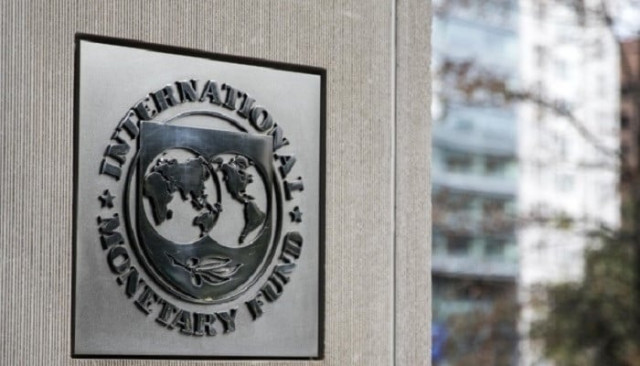IMF unsatisfied with revenue plan
Seeks additional information, details of revived development projects

The International Monetary Fund (IMF) has remained unsatisfied with the revenue and spending plans shared by Pakistan and has sought additional information, including details of shelved development projects that have now been taken up again as a top priority of the government.
The global lender’s demands came amid frustration in Pakistani camp over the IMF’s insistence to share information of the full current fiscal year, going beyond the ninth review period of July-September 2022, according to sources in the Ministry of Finance.
The last meeting between senior Pakistani and IMF officials was not very pleasant due to the latter’s call to comply with actions that were not even due during the ninth review period, said the sources.
The IMF has also questioned Pakistan’s claim that it can still generate Rs800 billion in revenue through the petroleum levy in current fiscal year, against the budget target of Rs855 billion. The collection in the first quarter remained at only Rs47 billion which, according to a finance ministry official, crossed Rs80 billion by the end of October.
But the IMF has asked Pakistan to provide month-wise details of petroleum levy and consumption of petroleum products from July to June 2023, according to the sources.
The fund expressed its apprehension that the government was exaggerating the collection estimates, said the sources. However, finance ministry officials were of the view that the petroleum levy collection and oil consumption would improve as business activities had started picking up pace in the post-flood period.
Pakistan has already imposed a maximum permitted levy of Rs50 per litre on petrol and has also started jacking up the levy on diesel.
The divergent positions have led to a significant delay in the arrival of an IMF mission to Pakistan for the completion of the 9th review and subsequent approval of a $1.2 billion loan tranche. The IMF team was tentatively scheduled
to arrive on October 26, but so far both sides had not been able to agree on a new date.
The delay in completing the ninth review is also affecting loan disbursements by other international creditors, putting an additional pressure on the foreign exchange reserves and the exchange rate. The IMF is seeking additional revenue measures to cover shortfall in the Rs855 billion petroleum levy target. Pakistan has committed that it will impose general sales tax on petroleum products, in case the collection remains below the target.
In order to seek clarity on the primary budget deficit, the IMF has asked the government to provide details of spending and revenue forecast by the four provinces, according to the sources. It has also asked for details of the expected revenue shortfall and extra spending by the provinces in the after-math of the floods, particularly by Sindh and Balochistan.
Last week, the government told the IMF that there would still be a primary budget surplus of Rs14 billion or 0.02% of GDP against the budgeted figure of Rs153 billion. However, this assessment is contrary to a World Bank report that showed Pakistan’s primary deficit at 3% of GDP. Sources said that the government had projected total expenditures, inclusive of the provinces, at Rs15.1 trillion, up by Rs934 billion, which the IMF thought was on the lower side.
A bone of contention was the additional electricity subsidies of over Rs100 billion provided to exporters, according to the sources. Pakistan had committed that it would not provide any further subsidy to the export-oriented sectors after allocating about Rs20 billion in the budget.
Estimates suggest that the annual cost may increase to around Rs145 billion, said the sources.
The IMF has also sought details of Rs48 billion worth of additional subsidies that the government recently approved for the provision of imported urea at controlled prices and running two urea manufacturing plants at the subsidised imported gas.
Moreover, the fund was also not satisfied with the Rs20 billion subsidy projection for the affordable housing project and sought details of the eligible people.
The lender has demanded information about the Public Sector Development Programme (PSDP) projects that the coalition government had earlier shelved, but was now keen to revive after the 2022 floods.
The planning ministry could not process this information due to an ongoing strike by the Economist Group and the Technical Group against discrimination in awarding a 150% executive allowance.
Pakistan has also been asked to provide details of the provincial development projects and their allocations as the IMF suspects that the provincial spending may compromise the overall primary budget surplus target, said the sources.
Earlier this week, IMF Resident Representative Esther Perez stated that the IMF staff continued discussions with Pakistani authorities over policies to reprioritise and better target support towards humanitarian and rehabilitation needs, while also accelerating reform efforts to preserve macroeconomic and fiscal sustainability.
The timely finalisation of the recovery plan was essential to support the discussions, along with continuing financial support from multilateral and bilateral partners, she added.



















COMMENTS
Comments are moderated and generally will be posted if they are on-topic and not abusive.
For more information, please see our Comments FAQ